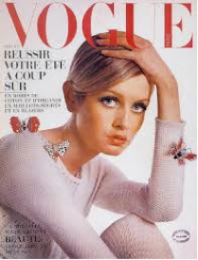The traditional coffee house has been an important space for society. It is a “public sphere,” that not only stands to create a warm, intimate and interactive social space, but also calls for a connection and attention to traditional activities, publishing and traditional communication. The assemblage, the bringing together of social life with a connection to media is an important tool that has been utilized for a long period of time. By placing an old bookshelf in a room filled with warm drinks, cozy couches, dimmed lighting and old books, we might be able to create a feeling of nostalgia, and in turn remind ourselves of the good, simple old days. We might be able to re-form a healthy bond with tangible publications, and maybe revive the struggling publishing industry! Maybe we could hold a conversation between two people, possibly one influenced by the publication we’re reading, that is in real time and space, a conversation that is published only between the people in the space, rather than to the rest of the world, as the Internet so easily allows. The coffeehouse can create a shift in culture. We have an over determined idea of community due to digitization, therefore, this shift is much needed. It is still ok to incorporate digitization, however, it should not take over! The Guardian editor in Chief said, “It’s not a ‘digital trend’. It’s a trend about how people are expressing themselves.” Maybe this can be a new way for people to express themselves and to find a space to explore.
We have lost touch of what it’s like to turn the page of a book and the feeling we get when we get lost in its plot. We have lost touch of sitting around and conversing about the daily happenings as we read in the newspaper. Possibly the coffeehouse is a communicative action.
We are too caught up in the hustle and bustle of society. The easily accessible Internet and social media have almost taken over our being. It has become a prevalent, and in my opinion, dangerous move from our natural ways. Possibly a cool, hip environment that encourages a reigniting of a love, respect and need for traditional publishing’s can bring us back to reality and move us away from becoming robots. Let’s face it; we’re pretty much acting that way!
These coffeehouses are cool, they’re hip and they embrace traditional publishing in all its forms. They embrace traditional books, live music, films, newspapers magazines etc. In this, memories and history are created! Having tradition publications are important for the creation of these memories. E-readers don’t allow for history to appear. In theses coffee shops, I can drop my coffee on the book and look back on it in a year’s time and have a memory. If I were to drop coffee on my computer, the only historical moment I would have is the moment I realized I was out hundreds of bucks.



